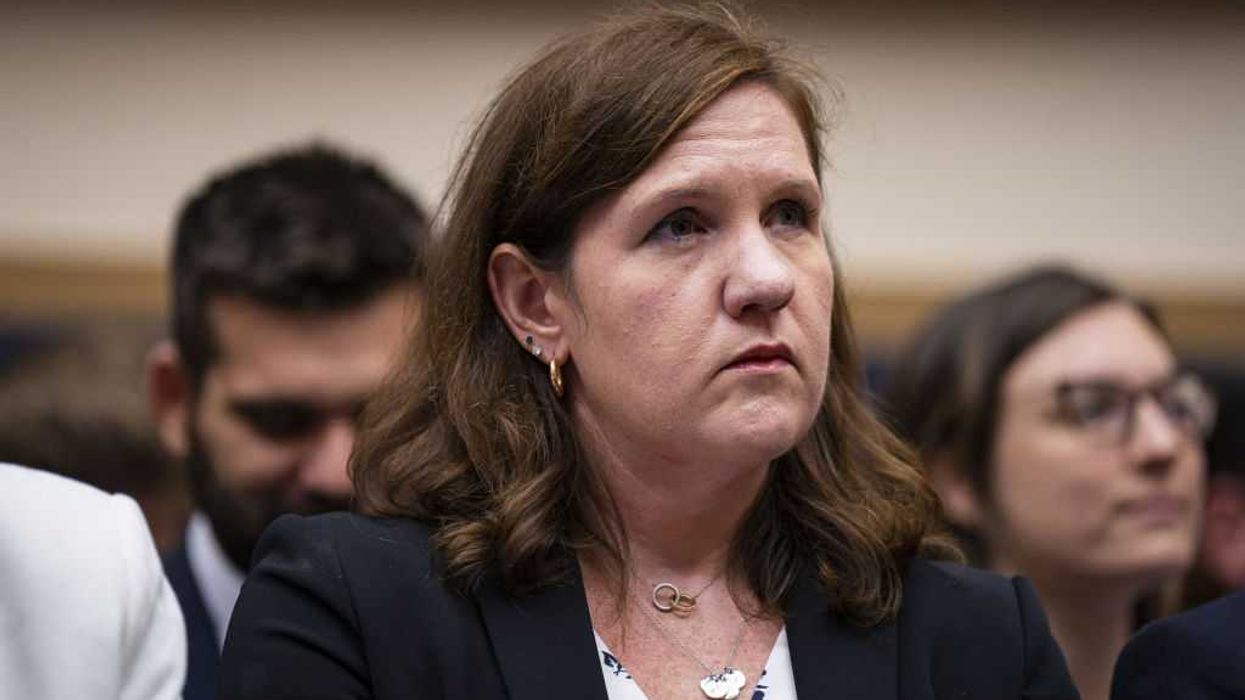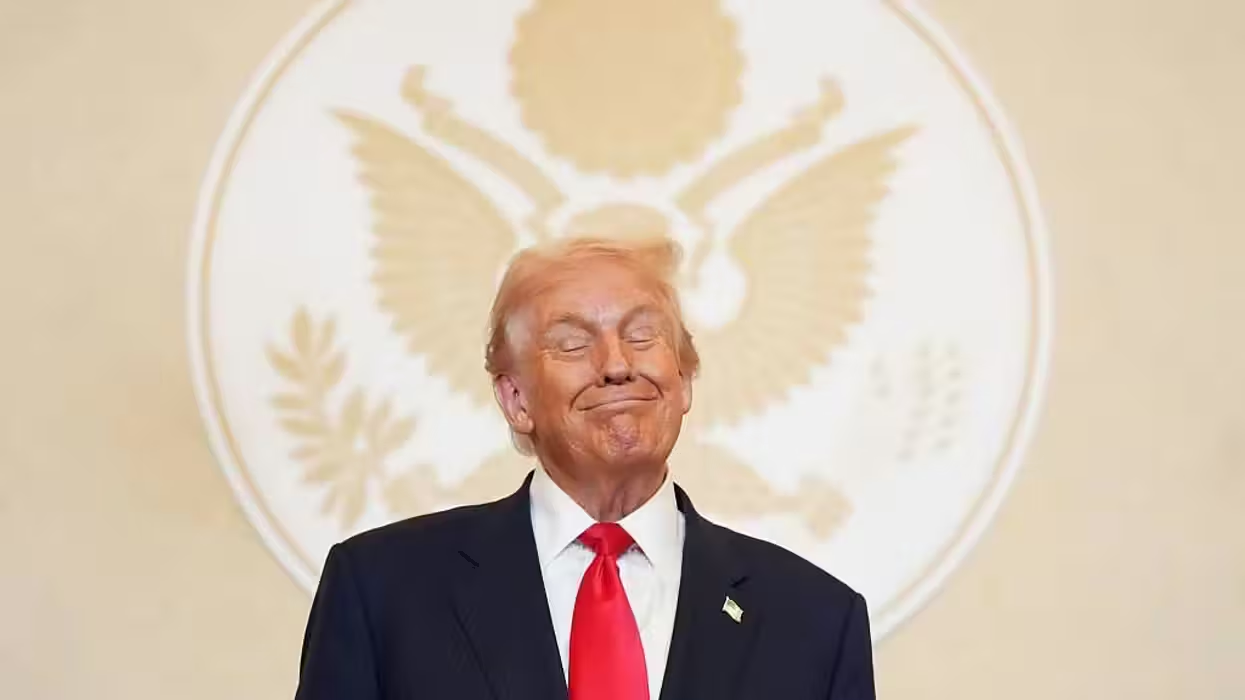
© 2025 Blaze Media LLC. All rights reserved.
Noted Analyst: The U.S. Is Like a Meth Addict When It Comes to Debt & We Could End Up Like Greece Soon
October 02, 2012
" ... we will begin to resemble Greece before the turn of the next decade."
Although some argue that, financially speaking, the U.S. is the world's "cleanest dirty shirt," noted financial manager and Pacific Investment Management Company (PIMCO) co-founder Bill Gross in an October letter to his investors warns that we're going to have severe economic problems unless we address our spending addiction.
"[The U.S.] has federal debt/GDP less than 100%, Aaa/AA+ credit ratings, and the benefit of being the world’s reserve currency -- which means that most global financial transactions are denominated in dollars and that our interest rates are structurally lower than other Aaa countries because of it," Gross writes, arguing the U.S.' position as an economic leader.
But don't be fooled by how Gross sets up his argument. He clearly believes the U.S. has major fiscal problems and that they should be addressed carefully and calmly.
"[A]rmageddon is not around the corner. I don’t believe in the imminent demise of the U.S. economy and its financial markets. But I’m afraid for them," he writes.
And he's not alone: The International Monetary Fund, the Congressional Budget Office, and the Bank of International Settlements all agree the U.S.' financial habits have gotten out of hand. But what do reports from these agencies amount to?
"What they’re saying is that when it comes to debt and to the prospects for future debt, the U.S. is no 'clean dirty shirt,'" Gross writes.
"The U.S., in fact, is a serial offender, an addict whose habit extends beyond weed or cocaine and who frequently pleasures itself with budgetary crystal meth. Uncle Sam’s habit, say these respected agencies, will be a hard (and dangerous) one to break," he adds.
Well, there's no dressing that up. The U.S. has a major spending addiction. What does Gross use to support this claim?
"[T]he three [agencies] all try to compute what is called a 'fiscal gap,' a deficit that must be closed either with spending cuts, tax hikes or a combination of both which keeps a country’s debt/GDP ratio under control,” Gross writes, noting that a "fiscal gap" differs from a "deficit" because it includes projected costs/spending (i.e. Social Security, Medicare, and Medicaid).
And because it's difficult to understand the U.S.' predicament from the data alone, Gross helps you visualize it by comparing it with other major countries.
"Several years ago I compared and contrasted countries from the standpoint of PIMCO’s 'Ring of Fire,'" Gross writes, referring to the perilous "Ring of Fire" a country enters when its annual deficit and 'fiscal gap' get out of control.
"What the updated IMF, CBO and BIS 'Ring' concludes is that the U.S. balance sheet, its deficit (y-axis) and its 'fiscal gap' (x-axis), is in flames and that its fire department is apparently asleep at the station house," he adds.

So how do we keep our debt/GDP ratio from exploding? Gross suggests two options: a) cut spending or b) raise taxes to 11 percent of GDP over the next 10 years. But given the current environment in Washington, it’s doubtful whether either of these issues will be addressed seriously.
"If we continue to close our eyes to existing 8% of GDP deficits, which when including Social Security, Medicaid and Medicare liabilities compose an average estimated 11% annual 'fiscal gap,' then we will begin to resemble Greece before the turn of the next decade," Gross warns.
"Unless we begin to close this gap, then the inevitable result will be that our debt/GDP ratio will continue to rise, the Fed would print money to pay for the deficiency, inflation would follow and the dollar would inevitably decline," he adds.
His warning continues:
If that be the case, the U.S. would no longer be in the catbird’s seat of global finance and there would be damage aplenty, not just to the U.S. but to the global financial system itself, a system which for 40 years has depended on the U.S. economy as the world’s consummate consumer and the dollar as the global medium of exchange. If the fiscal gap isn’t closed even ever so gradually over the next few years, then rating services, dollar reserve holding nations and bond managers embarrassed into being reborn as vigilantes may together force a resolution that ends in tears. It would be a scenario for the storybooks, that’s for sure, but one which in this instance, investors would want to forget. The damage would likely be beyond repair.
Click here to read his full letter.
Follow Becket Adams (@BecketAdams) on Twitter
(H/T: BI). Front page photo source courtesy shutterstock.com.
Want to leave a tip?
We answer to you. Help keep our content free of advertisers and big tech censorship by leaving a tip today.
Want to join the conversation?
Already a subscriber?
more stories
Sign up for the Blaze newsletter
By signing up, you agree to our Privacy Policy and Terms of Use, and agree to receive content that may sometimes include advertisements. You may opt out at any time.
Related Content
© 2025 Blaze Media LLC. All rights reserved.
Get the stories that matter most delivered directly to your inbox.
By signing up, you agree to our Privacy Policy and Terms of Use, and agree to receive content that may sometimes include advertisements. You may opt out at any time.






